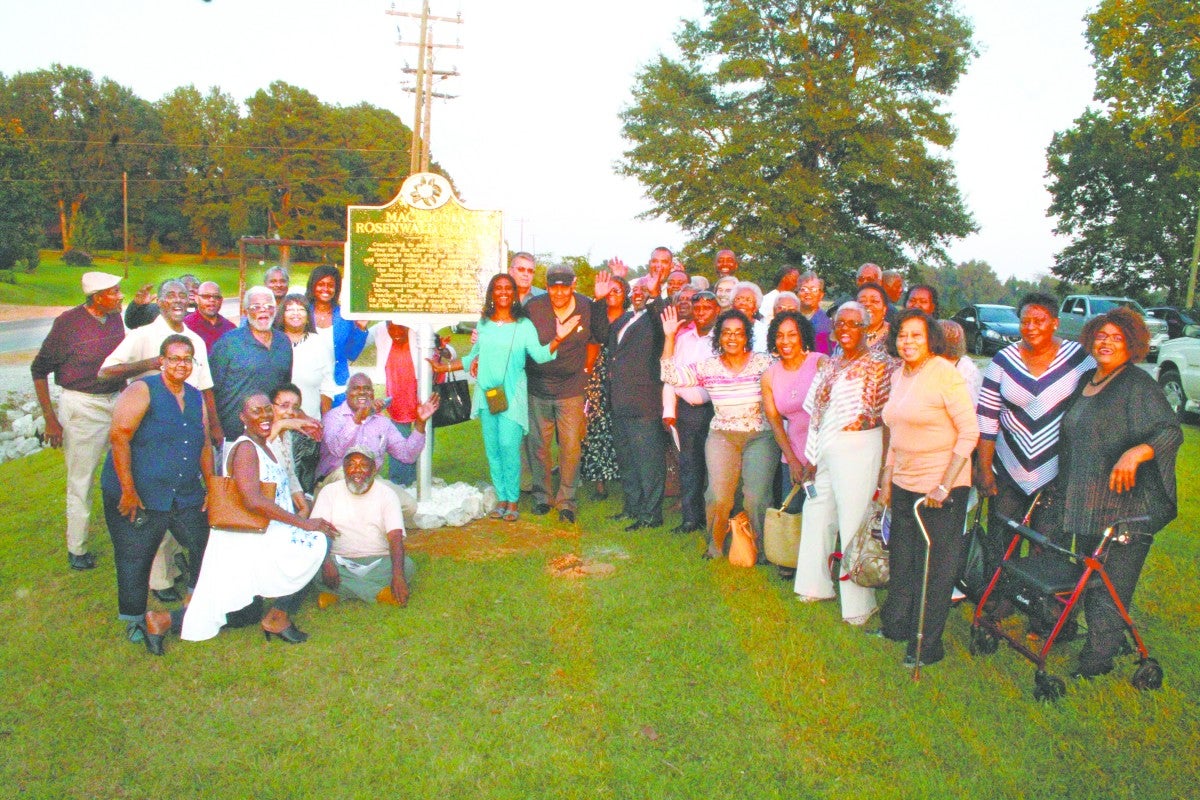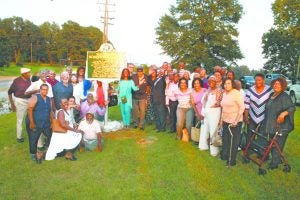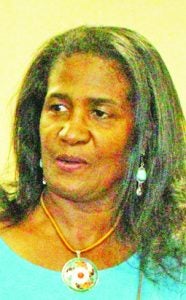Alums, friends celebrate school’s significance
Published 11:04 am Tuesday, September 19, 2017

- Alumni and many friends celebrated the placement on Friday of the Macedonia Rosenwald School historical marker at the site of the former school that educated African-American children in the community from 1925 to 1963. Friday’s program at the community center building that still serves on the site was followed by a symposium at Ole Miss Saturday and a reception at the Batesville Public Library on Thursday.
Alums, friends celebrate school’s significance

Alumni and many friends celebrated the placement on Friday of the Macedonia Rosenwald School historical marker at the site of the former school that educated African-American children in the community from 1925 to 1963. Friday’s program at the community center building that still serves on the site was followed by a symposium at Ole Miss Saturday and a reception at the Batesville Public Library on Thursday.
By John Howell
Weekend events in Batesville celebrating the placement of an historic marker at the site of the Macedonia Rosenwald School brought reunions among old friends and classmates, memories from the 20th Century and a unique community learning and cultural opportunity.
The marker was unveiled Friday afternoon at the site of the present Macedonia-Concord Community Center, 8302 Curtis Road, a structure that yet hosts events reminiscent of the cooperation between members of two neighborhood churches who in early 1920s pooled their materials and labor to match a grant from the Julian Rosenwald Foundation to build a small, wood frame school on donated property.
“We’re like Siamese twins,” Friday program emcee Greg Franklin said, referring to the Concord and Macedonia M.B. churches and the “collaborative effort” from members of both congregations who built not only the school in 1925 but also the community center that replaced the original structure in 2000 with the community center building.
The school was erected according to standardized plans from the Rosenwald Foundation as a “two teacher” school and was part of a movement that eventually saw over 5,300 Rosenwald schools built to educate African-American children in 15 southeastern states. The Macedonia Rosenwald School was one of nine built in Panola County and 550 in Mississippi from 1910 to 1932, according to Dr. Mary S. Hoffschwelle, history professor at Middle Tennessee State University and author of The Rosenwald Schools of the American South. Hoffschwelle spoke at the Friday program prior to the monument’s unveiling.

Johnson
“At the time, one-third of the African-American children in the southeast were educated in Rosenwald schools,” said Stephanie Deutsch of Washington, DC who wrote You Need a Schoolhouse, Booker T. Washington, Julius Rosenwald and the Building of Schools for the Segregated South and speaker at the Thursday evening reception at the Batesville Public Library.
Panola native and Macedonia alumnae Cheryl Johnson has served as project director and brought the program to fruition, beginning last October when she was notified that the marker had been approved by the Mississippi Dept. of Archives and History (MDAH). “By remembering and celebrating Macedonia School, you are continuing this legacy,” Johnson said.
Johnson coordinated interest and partnerships with organizations in three counties and also the University of Mississippi School of Education William Winter Institute, the J. D. Williams Library Special Collections, the First Regional Library, the Panolian, the Panola County NAACP, the University of North Carolina Asheville Center for Diversity Education as well as MDAH.
“Rosenwald schools were a lifeline between the Civil War and Brown vs. Board of Education,” said former Governor Ronnie Musgrove. “Not only was Rosenwald a visionary, he just saw it was the right thing to do.”
That “right thing” Rosenwald did was to partner with Booker T. Washington and the Tuskegee Institute to establish the Julian Rosenwald Foundation that funded the schools with the community partners across the southeast. Musgrove attended the Thursday reception with his wife, Melody Musgrove, Co-director of the Graduate Center for the Study of Early Learning and Associate Professor of Special Education at the University of Mississippi. Melody Musgrove was one of eight panelists at a symposium, “What is the State of Education for African American Children in Mississippi, 63 Years after Brown?” held on the final day of the Macedonia Rosenwald activities Saturday at Ole Miss.
During Friday’s event, Hoffschwelle cited State Dept. of Education records from 1921 citing the racial disparity for per pupil expenditures that year — $22.93 per white student; $4.23 per pupil for black students.
The Rosenwald Foundation records show that the Macedonia school was completed at a total cost of $2,320 with $1,120 collected in donations from the black community, $300 from the white community, $200 from the county and $700 from the foundation.
Representative Lataisha Jackson, who was among people signaled out during the programs for their support of the Macedonia Rosenwald Project, cited the inspiration she receives from the people who provided “this spot of ground” for the school to be built and then for the ongoing support the community provides for school children today, “where they don’t have extracurricular activities today.
Also recognized Friday with plaques of appreciation for their project support were Panola County NAACP President and local historian Julius Harris and Congressman Bennie Thompson. Congressional aide Sandra Jamison accepted on the congressman’s behalf.
On Thursday night, Johnson presented plaques of appreciation to Batesville librarian Hanna Lee for the library’s support and to The Panolian.


